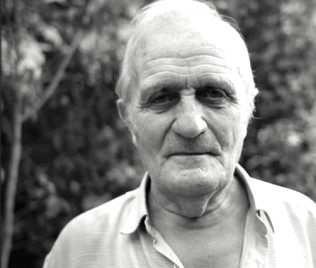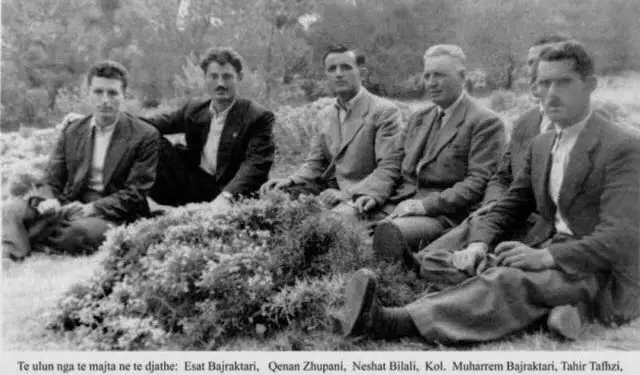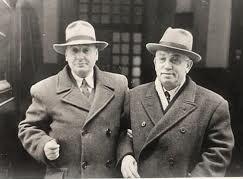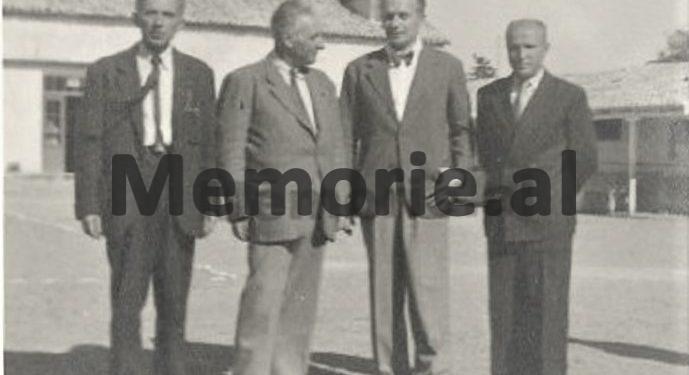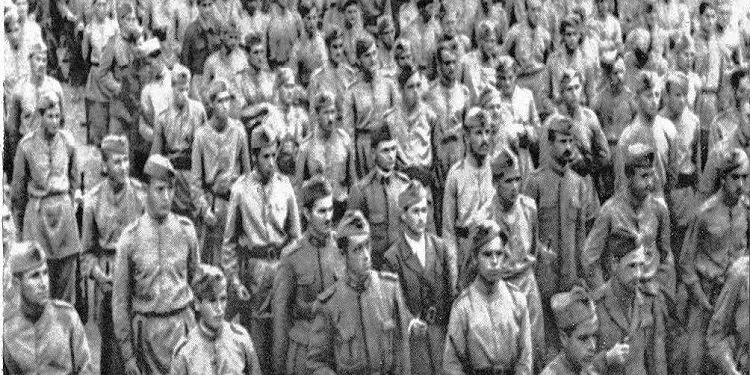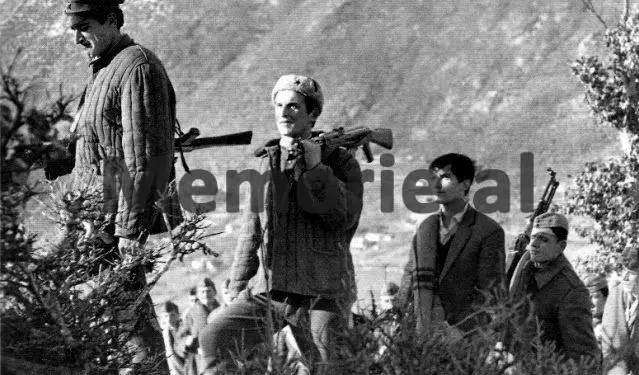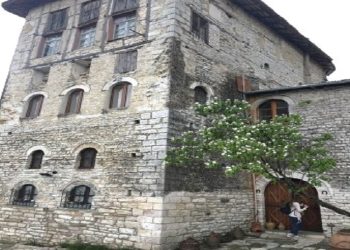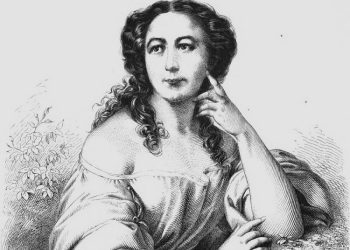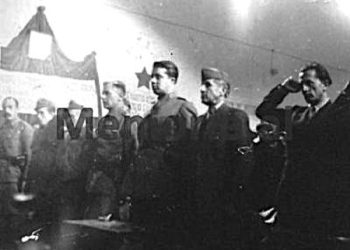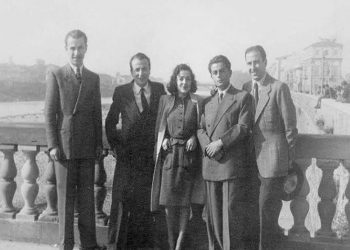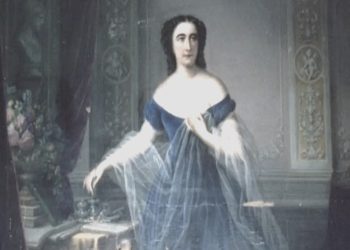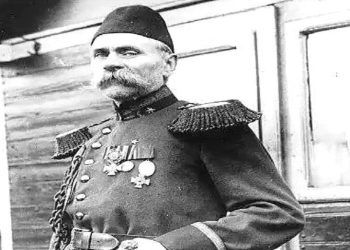By Islam Spahija
Part Three
Memorie.al / The Bjeshkët e Luma Mountains are not only known for their natural beauty and grandeur, they also have monumental value. If we talk about natural beauty, we will inevitably use Naimi’s lyrical language; we will mention “tall oaks”, “pure rivers”, “the place where cold water springs, where the flower with a lot of gas grows”, etc…! While if we talk about monumental value, we would refer to the folk epic where the events that occurred in specific places and points are sung, and where our national history is magnificently carved. All great people have had this privilege from nature. And for such a figure, it is worth talking.
Continued from the previous issue
For pilgrims passing through Qafë e Kolesjanit, it is difficult not to notice a hill surrounded by a moat, which is visible on the side of a valley to the south, and at the same time not to talk about it: “That … the moat of Muharrem”, then anecdotes, legends, rumors…! For some, this moat, regardless of the purpose for which it was built, was the manifestation of a greed for showing off. For others, it was a symbol of a people’s resistance, for its existence.
Who is right, time will prove, this “slow but sure friend of thinkers” (Konica). However, this hill has already remained as an ancient monument, which says to the future: “Sic transit gloria mundi” … Behind that hill is the village of Dome. There are the ruins of the towers of Bajraktar, towers characteristic of the Northern Highlands.
Here lived the first, among whom Neziri, Muharrem’s father, stood out, and here he would be born who, in the most crucial period of our national history, would represent the River, with its aspirations and efforts, with the dignity of a leader, of a great captain. His name alone would be enough; true glory does not need epithets.
Muharrem Bajraktari was born in Ujmisht, Kukës River, from a traditionally noble family. With a fighting temperament, he tried out the rifle at the age of 16, this time in the war against the Serbian aggressors. In his youth, he displayed ambitions that characterize extraordinary people. He, like Napoleon, who had declared when he was a schoolboy: “I cannot bear the idea of being second to anyone”, had expressed this, which is why he, as can be seen in his biography, excelled everywhere and at all times. He had a military education. He qualified in the gendarmerie at the prestigious Academy of the former Austro-Hungarian Empire in Vienna. In 1924, he earned the rank of captain, a very high rank for that time, along with three others: Hysni Dema, Preng Pervizi, Fiqiri Dine.
These were the four pillars of order on which the dome of the New Albanian State was first supported. His successes quickly led him to the high steps of his career: First, commander of the gendarmerie for the prefecture of Kosovo, which included Lumë, Hasi, Malësia e Gjakova (Tropoja). A little later, he was appointed commander of the National Guard, initially deputy and, ultimately, Commander-in-Chief of the Gendarmerie, for ten years in a row.
Next to him was the well-known English general, Percy, as an advisor. His merits were recognized and the new, but modern state of King Zog decorated him with the highest order, that of “Skënderbeg”, a testament to the virtue of this costly suit. But hatred cannot be insensitive to greatness: it gave birth to intrigue and jealousy of those who could not stand his superiority. Thus he was forced to immigrate to France (Paris), where he stayed for five years.
The aggression of fascist Italy raised the indomitable patriot and he would immediately come to his homeland. During his return he had a meeting with Benito Mussolini in Rome. The latter offered him the highest position of the Albanian vassal state, but he refused. As soon as he arrived in his homeland, he went underground and began organizing his resistance group against the occupier. His family was among the first to suffer persecution, like many other nationalist families, they were exiled. Their houses were burned in a demonstrative manner. Expeditions were organized against him, such as that of the Mirditër “volunteers”, under the leadership of Kapedan.
Of course, these were deceived because traditionally the people of Mirdita have gone as brothers with those of Luma. By now the mountains were ringing with the sound of weapons. All expeditions against Muharrem failed one after another. The episodes were romantic. In battles with forces many times greater, he triumphed. In sieges without hope of salvation, accurately spotted, he would disappear to appear in a place where no one expected him.
His name was transformed into a myth, into a legend. Well, it was already said that “he had left with a shirt” … And this faith in the common people was always increasing because events seemed to confirm this. It is understood from this that all political currents in the province were paralyzed before the authority of the legendary Bajraktar.
In August 1943, when fascist Italy capitulated, the Italian military forces, deployed in Kukës, surrendered to Muharrem Bajraktar. With the captured weapons, he armed the people to continue the war against another occupier, the German one. He also brought this war to the end, except this time through the provocations and blackmail of the National Liberation Army. He kept his cool, following the Allied line and thus avoiding a fratricidal war. But the “reds” lost their patience; they tried to annihilate him.
So they prepared a trap for him, and this happened in Gostilë. Here an unforgettable episode occurred, which added to the fame of this rare man. The commander of the 5th Assault Brigade invited him to a meeting, supposedly to “coordinate actions…”. He “transmitted” the order of the General Command of the National Liberation Army that Bajraktari should come under his command. However, the latter categorically rejected this absurd claim and as soon as they separated, a few steps further, the battery of the encircling army cracked, simply a betrayal.
The experienced captain was surprised in the open field, with his companions, Sadik Spahina and Dalip Nuhina, on his arms. Without breaking the blood at all, with the maliher in his eyes, he broke through the bullet dust and emerged from the encirclement untouched. This legend would be repeated again in later events, after the establishment of the dictatorship. It was precisely in this period that the emblem of his glory would crystallize. From now on, we are not dealing with the “colonel” of a legal state, with a ruler or a “politician”, but with a legendary hero, with a Robin Hood.
Thus he continued to stand in the mountains with his permanent band of chosen brave men, of true braves, a band that, supported by bravery and selflessness, can be compared quite well with Napoleon’s Old Guard, or with Giuseppe Garibaldi’s thousand. The sacrifices of these men were no less. They had sworn to their leader that they would stay with him until death. And they proved this: most of them fell alongside him on the field of honor. Here is a simple chronicle: In May 1945, in Gabrrice, he was surrounded by numerous pursuing forces.
His two sons, aged 21 and 22, were killed there. The body of the first was not found. June 1946 – Maja e Vole, Gjallicë. Surrounded by the Special Forces battalion, raised specifically to pursue Bajraktar’s platoon. Here, the bravest men fell like men: Sefë Xheladini (Dome), Destan Rexhepi (Bice), Tosun and Elmaz Çejku (Lusa, father and son). Their bodies were “exposed” in a macabre manner, on Kodër Osmane (Bicaj).
But there were losses on both sides. It was said that Bajraktar had ordered his fighters not to shoot at ordinary soldiers or at people from good families in Lumeja, except in unavoidable cases, when the aggressor was very dangerous. The officers and unit commanders were especially targeted, and this “task” was carried out by the sniper himself, a peerless guerrilla. But even this resistance had its end.
Muharrem did not stay in the mountains to cause fratricide. He waited for the implementation of international conventions, or the agreements of the Allies, in the historic conferences on the political regulation of the post-war world. However, the attitude of the Soviet Union towards these agreements betrayed his hopes for a democratic Albania and, having no other choice; he again took the path of exile, leaving his son and daughter in Albania.
Neshat Bilali recalls: “Before we left, Muharrem Bajraktari gave us a short but touching speech: The time has come to leave. I advise those who are going to stay alive not to forget Albania. Wherever we go, we must work for it. The day will come when we will return. May it be for our good”! And so, on August 16, 1946, together with 52 people, he illegally crossed the state border from the Macedonian side and arrived in Greece.
In the struggle with the Yugoslav forces, 21 of them lost their lives. Muharrem’s brother, Bajram Bajraktari, a prominent intellectual and patriot, remains seriously wounded there. He was captured and handed over to the Albanian communist state, after much torture, was tried and executed in 1949. Bajraktari’s life in exile was filled with efforts in the service of the sacred cause of the Fatherland, but this required a special treatment. in himself. He died in Brussels, on January 21, 1989.
In the eternal procession, his dream was suddenly confirmed: a united Albania. How? A strange feeling of brotherhood united everyone behind the coffin, in a single pain, under a single flag, the National Flag that wrapped the coffin. Thus, in the last hour, he gave the nation a few minutes of strength and peace: all the political parties, incompatible among themselves, he united on his grave, perhaps because he did not belong to any party. His grave was covered with flowers and wreaths, coming from all over the world, where there were Albanians.
He was unanimously baptized “The Immaculate Nationalist”. And shortly after that, as a magnificent greeting, the bomb of the greatest miracle of the 20th century exploded: the collapse of the world communist system. The great colonel closed his eyes forever, without seeing one of his greatest dreams come true; a liberated Kosovo. Albanian patriots now await the day when the remains of the national hero will come and be finally laid to rest in their motherland. And if our national Pantheon is ever built, he will definitely have the place he deserves, there among the brightest figures of the nation. Memorie.al




